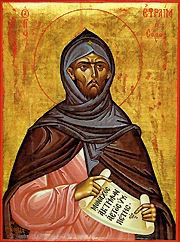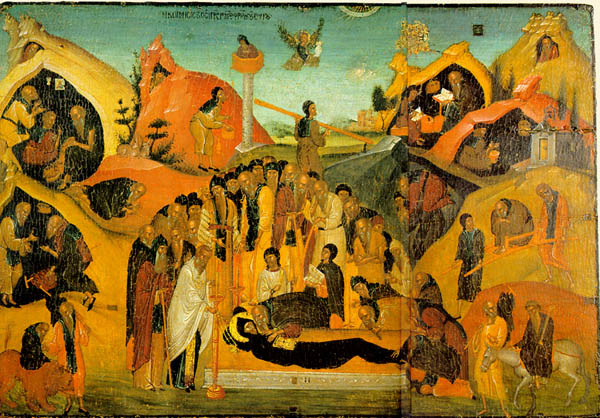
When, led by the Spirit of God, he went to Caesarea in Cappadocia, there he saw Basil, that mouthpiece of the Church, and both enjoyed mutual companionship in a suitable manner. In order to refute the countless errors which were rife at that time, and which were troubling the Church of God, and in order to expound zealously the divine mysteries of our Lord Jesus Christ, he wrote many studies in Syrian, almost all of which have been translated into Greek. St. Jerome beareth witness that he attained such fame, that his writings were read publicly in certain churches after the reading from the Scriptures.
His works taken as a whole, so infused with the bright light of learning, brought it about that this holy man, while yet alive, was held in great honour, and was even considered a Doctor of the Church. He also composed songs in verse, in honour of the most blessed Virgin Mary, and of the Saints, and for this reason he was appropriately named by the Syrians the Harp of the Holy Ghost. He was noted for his great and tender devotion towards the immaculate Virgin. He died, rich in merits, at Edessa in Mesopotamia on the 18th day of June in the reign of Valens. Pope Benedict XV, at the instance of many Cardinals of the Holy Roman Church, Patriarchs, Archbishops, Bishops, Abbots, and religious communities, declared him by a decree of the Congregation of Sacred Rites to be a Doctor of the universal Church.





